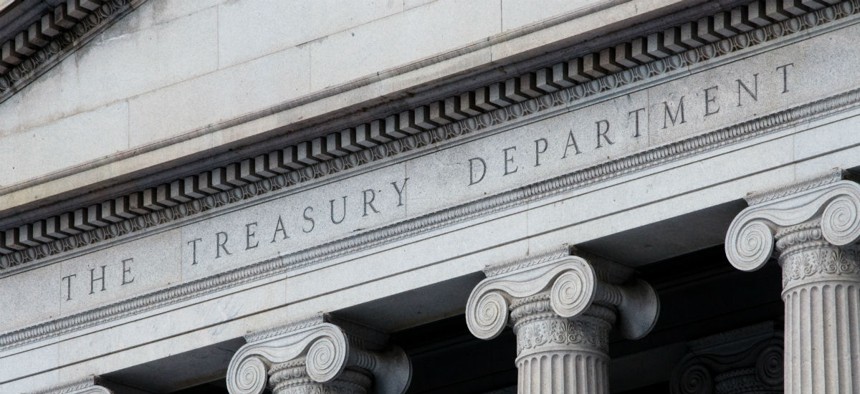The ‘Secret’ Government Document Every American Should Care About
The Treasury Department recently published the most important 256-page report you’ve probably never heard of.
A few weeks ago the Treasury Department published the most important 256-page document that you’ve probably never heard of—the annual Financial Report of the United States Government. Your first reaction might be to look at this report as fondly as you look at your credit card account statement. But considering we all have a share in what has become the largest financial institution in world history—and a share of related debt that swamps our credit card balances—this report isn’t one to toss out lightly with the junk mail. Its importance is hard to overstate.
Treasury Secretary Steve Mnuchin introduced the report with a one-page letter lauding the nation’s economic growth and the administration’s “historic Tax Cuts and Jobs Act,” even though this was a report about the government’s finances last year, not the overall economy or new legislation. Mnuchin identified the report as a resource that “should help facilitate open and productive dialogue to ensure a prosperous future for the American people.”
As far as predictions go, however, the report was off to a bad start with this expectation. Released on a Thursday afternoon before a three-day federal holiday weekend, the report’s arrival sparked a deafening silence. None of the national “papers of record,” including The Washington Post, The New York Times, or The Wall Street Journal, spilled any ink on the release of this report. Nor was it covered on the big TV networks.
Back in 2006, in an article headlined “Red Ink Run Amok,” legendary Washington Post columnist David Broder called this publicly-released document “one of the most secretive documents in Washington.” He could have said some of same things today.
The meat of the report includes results showing continued deterioration in our federal government’s finances, and grim assessments of what it plainly describes as an “unsustainable” fiscal future. These aren’t the only causes of concern. Significant gaps in reliable financial information basically make this an incomplete bill of health. The Government Accountability Office delivered another “disclaimer of opinion”—a flunked audit—citing known unknowns like those arising from widespread material weaknesses in accounting at the massive Defense Department.
Yet the report draws a surprisingly, if not depressingly low level of interest in the United States. The average American has no idea that such a report even exists. Even sophisticated parties that should care seemingly don’t.
Sadly, our mainstream media has to share part of the blame. Annual reports from powerhouse companies like Apple, Walmart and Warren Buffett’s Berkshire Hathaway generate media coverage and clicks from investors, Wall Street analysts, and consumers around the world, year after year. Why is there not the same curiosity about our federal government’s financial position? Every taxpayer, after all, is effectively an investor in America. And if our government were a private corporation, you have to wonder how long the authorities would allow such dismal financial reporting to continue.
As taxpayers and citizens, we all have the right to know what the federal government is doing with our money (that’s right, our money). Sadly, it looks like the most recent financial report is falling on as many deaf ears as it has in the past, at least among the most powerful information overlords relied on by hundreds of millions of Americans. At the end of the day, however, we all have to look in the mirror. Or at least on the Internet, where this report was published and is still freely available at the Treasury’s website, just as it was back in Broder’s day.
Bill Bergman is Director of Research at Truth in Accounting, a Chicago nonprofit dedicated to educating citizens about government financial conditions with a view to promoting truthful, timely, and transparent financial reporting. Bill has more than 30 years of financial market experience, including 13 years as an economist and policy analyst with the Federal Reserve Bank of Chicago. Bill also teaches finance courses at Loyola University Chicago.







